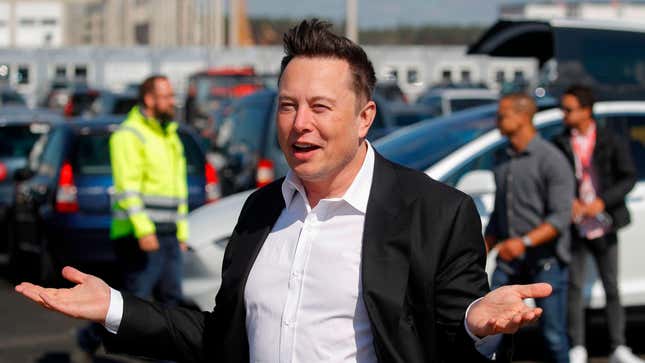
Elon Musk’s non-union woes keep piling up, it seems. First, he doesn’t get invited to the White House, and now, union lobbyists are hurting Tesla. Musk claimed via Twitter on Sunday that the EV credit expansion proposed by U.S. Democrats was written by lobbyists representing Ford and the United Auto Workers.
The proposed expansion could increase EV credits by quite a bit, in an effort to offset the cost of electric cars by up to $12,500. That’s a lot of money, and it might help drive the adoption of EVs. So, this should be a win for electric carmakers and drivers alike, but criticism of the expansion claims that it gives an unfair advantage to electric cars from Ford, GM, and Chrysler ... union-made ones that is.
Of course, that rules out Tesla’s cars since the carmaker has resisted efforts to unionize its production plants. It also rules out EVs from Toyota and Honda, which have both also taken exception to the proposed EV credits, per Electrek.
This tax credit revision doesn’t reduce EV credits in place now. It just increases the credits based on certain things, like whether or not the electric cars are made domestically by union workers, or if the battery is at least 40kWh, or based on where the battery is made. Again, it all favors U.S. production.
The credit expansion does include a five-year grace period for EVs produced outside of the U.S., however, which Musk cited in his allegation. The tweet noted that Ford’s current electric car is made in Mexico, and is likely a comment on the Mach-E being produced at Ford’s Cuautitlán Assembly plant.
Musk said it’s not clear how that’s helping American taxpayers. (Elon’s record with taxpayer money is ... perhaps less than rosy, but that’s a boring story.) And sure, the expansions do give special treatment to U.S.- and union-made electric cars, so Musk isn’t that off-base with his observation. In fact, both Bloomberg and Electrek mentioned a Michigan Democrat, Dan Kildee, is behind some of the legislation. Electrek goes further and argues that Kildee likely has a lot of support from Ford and the UAW.
But it’s not like Musk is angry about special treatment and lobbying, in general. Remember that Musk is pushing for similar treatment in India as Tesla tries to carve out a place in that market, as Reuters reports. So, this all just makes it looks like Musk is against special treatment and lobbying ... but only when it puts Tesla at a disadvantage.
